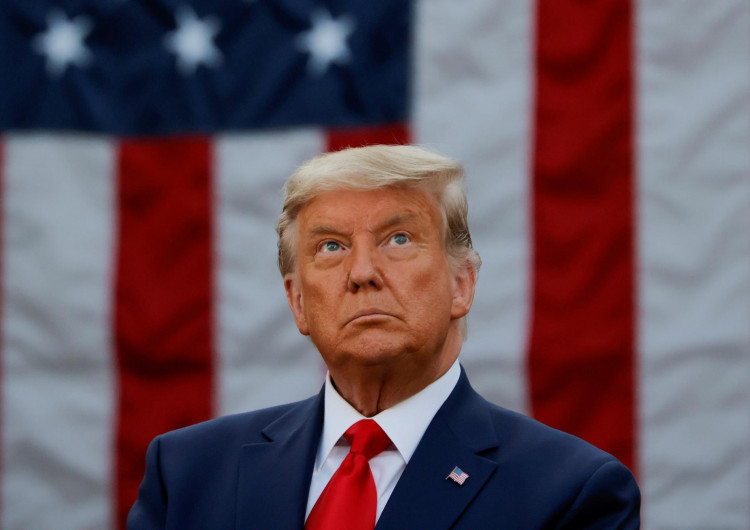Former President Donald Trump sparked controversy with his remarks about immigrants, particularly from Africa and Asia, claiming they are "poisoning the blood of our country." This statement, echoing rhetoric historically associated with hate and xenophobia, has been met with widespread backlash.
Trump accused the Democratic Party of allowing millions of undocumented immigrants into the U.S. since his departure from office, criticizing their immigration policies. He alleged that these immigrants come from various parts of the world, including mental institutions and prisons, and pose a threat to the nation in terms of crime and terrorism. These comments were received with applause from his audience, yet they have raised serious concerns about the inflammatory and divisive nature of such language.
Critics, including civil rights advocates and political opponents, have condemned Trump's remarks. Jonathan Greenblatt, president of the Anti-Defamation League, labeled the comments as "racist, xenophobic, and despicable." Similarly, the Biden campaign released a statement criticizing Trump's rhetoric, likening it to the language used by Adolf Hitler in his manifesto "Mein Kampf." The campaign emphasized Trump's tendency to echo authoritarian figures and his continued undermining of American democracy.
Further, Jonathan Stanley, a Yale professor and author specializing in fascism, expressed concern about the normalization of such dangerous speech, especially when used by a leading presidential candidate. He drew parallels between Trump's language and Hitler's warnings against blood poisoning by Jews in "Mein Kampf."
Social media reactions to Trump's rally have been overwhelmingly critical. Users on X, formerly known as Twitter, expressed their dismay at Trump's "openly racist" stance, with some highlighting the irony of his immigrant wife recently speaking in D.C. The backlash is part of a larger context in which Trump's immigration policies and rhetoric have been central themes of his political identity.
Despite the criticism, Trump remains unapologetic about his stance on immigration. His campaign continues to focus on America's southern border, demanding new policies and measures to handle immigration issues. This focus aligns with his allies in Congress, who prioritize immigration reform and border security in their legislative agenda.
Chris Christie, a Republican presidential candidate, denounced Trump's remarks as "disgusting" on CNN's "State of the Union." He criticized Trump for targeting vulnerable Americans and using divisive language. Christie also called out fellow Republican Nikki Haley for her support of Trump, asserting that enabling such rhetoric is part of the problem.
Trump's use of "blood poisoning" to criticize immigration isn't new; he has previously invoked the term in interviews, receiving a mixed response from fellow Republicans. Senator Lindsey Graham, while disagreeing with Trump's choice of words, downplayed the significance of the language, focusing instead on the policy aspect of immigration.
The controversy surrounding Trump's recent comments highlights the ongoing debate over immigration in the U.S. and the role of political rhetoric in shaping public discourse and policy.






